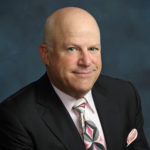Why Board Certification Matters
Due to the preponderance of physicians who identify themselves as “cosmetic surgeons” and the presence of the American Board of Cosmetic Surgeons, many consumers are confused as to whether their prospective surgeon has the education, skill, and experience to assure them of the best (and safest) outcome. Hopefully, this post will enable you to understand the differences so that you can choose wisely.
Board Certification is a mechanism to assure consumers that their physician (pediatrician, family doctor, plastic surgeon, etc.) has met specific, rigorous standards that reflect the highest level of care. During the lengthy board certification process, a committee (board) of qualified senior physicians–in the candidate’s specialty–evaluate each candidate on these criteria: professionalism; patient care and procedural skills; medical knowledge; practice-based experience; interpersonal and communications skills; and integrity, via numerous written and oral tests, as well as recommendations from specialists in the candidate’s field of medicine. For plastic surgeons, photographs that demonstrate the candidate’s skill are also required.
The American Board of Medical Specialties (ABMS) oversees 24 specialty boards including, but not limited to, boards for family physicians, general surgeons, plastic surgeons, cardiologists, cardiovascular surgeons, pediatricians, and more. For over 80 years, the ABMS has set the standards for board-certified physicians and continues to update its professional and educational standards to assure consumers that board-certified practitioners will deliver the highest possible care.
The Board that Certifies Plastic Surgeons
The American Board of Plastic Surgery, one of 24 boards of the American Board of Medical Specialties, certifies plastic surgeons. It’s important to understand that if a physician states that he or she is board certified, it may not indicate that the surgeon is board certified in plastic surgery. He or she may be board certified in general surgery, gynecology, or any other specialty, and may perform cosmetic surgery because, by law, any MD in the US can perform cosmetic surgery whether or not they have been trained to do so. Therefore, it’s important that you confirm that your surgeon is board certified in plastic surgery if you wish to benefit from the services of the most highly trained specialist.
To qualify as a board-certified plastic surgeon, a candidate must meet these standards:
- Graduate from an accredited medical school
- Be a licensed medical doctor
- Complete a minimum 5 years of residency training in surgery
- Complete an additional two years of residency training in plastic surgery
- Pass written and oral exams
- Provide photographic proof of their skills
- Provide references from respected plastic surgeons
- Adhere to a strict code of ethics
Plastic Surgery Associations
There are two plastic surgery associations in which membership is limited exclusively to board-certified plastic surgeons: The ASPS and the ASAPS. The presence of the ASPS logo and/or the ASAPS logo on a plastic surgeon’s website is your assurance that your surgeon is board certified in plastic surgery.
The ASPS (American Society of Plastic Surgeons) is the largest plastic surgeon association in the world. Membership is limited to physicians that are board certified in plastic surgery. Some ASPS members specialize in reconstructive surgery, some in cosmetic (aesthetic) surgery, and some perform both types of plastic surgery. To become an ASPS member, a candidate must be “sponsored” by two current ASPS members within 100 miles of his or her practice location and submit a copy of their board admissibility letter to verify that he or she is board certified in plastic surgery. After one year as a candidate for membership, the ASPS Board of Directors votes to accept or reject the candidate’s request for membership.
The ASAPS (American Society for Aesthetic Plastic Surgery) is a highly selective association of aesthetic plastic surgeons. Established in 1967, the ASAPS’s mission is to advance the science, art, and safe practice of cosmetic plastic surgery. Admission to this elite group requires the following:
- Board certification in plastic surgery by the American Board of Plastic Surgeons
- Documentation that proves that the candidate has performed a minimum of 75 cosmetic procedures within 18 months of application for membership or completion of a 12-month ASAPS-endorsed aesthetic fellowship.
- Proof that the candidate has completed 60 “category 1” continued medical education units in aesthetic surgery during the 36 months prior to application for admission.
- Sponsorship by two ASAPS members at least one of who is located within 100 miles of the candidate’s practice.
- Submission of a report detailing all malpractice cases, if any.
- Verification that surgical facilities used by the candidate are accredited.
- Agreement to abide by the ASAPS Bylaws and Code of Ethics.
The AACS and the American Board of Cosmetic Surgery
The AACS, American Academy of Cosmetic Surgeons, is a membership organization composed of physicians who focus on cosmetic surgery. Members of the AACS are not required to be board certified in plastic surgery. For this reason, most AACS members have either “switched” from those professions to perform cosmetic surgery on a full-time basis, or they perform cosmetic surgery in addition to their primary field, such as an OB/GYN who performs tummy tucks, liposuction, and breast enhancements, or a family physician who injects Botox® and dermal fillers.
The American Board of Cosmetic Surgery is not part of the American Board of Medical Specialties. The only board that certifies physicians who wish to perform reconstructive and/or cosmetic surgery is the American Board of Plastic Surgery.
The Bottom Line about Board Certification
Imagine a family member is in need of a heart specialist, and you have two choices: your family doctor or a board-certified cardiologist. While you may like and trust your family doctor, and while your family doctor may be board certified in family practice, isn’t it more likely that you’d take your loved one to see a cardiologist, precisely because you know that cardiologist has extensive training in heart disorders, likely more training than your family member may even need? Of course, you would. While a desire for a breast augmentation, a facelift, or an injection of Botox® doesn’t fall anywhere near the magnitude of the need for a heart specialist, the results of most aesthetic procedures and treatments are in plain view for others to see. I’m sure you’d agree that getting the very best care is important.
If you desire the skill and experience of a thoroughly trained plastic surgeon, of which I am one, there is no substitute. Our broad-based training in both reconstructive and cosmetic surgery procedures, and our verification by an outside board composed of respected elders in our field, point to an experience that cannot be duplicated by those who lack it. Don’t be fooled by second-tier certifications or memberships. When you see the words “board certified,” ask what board-certified that surgeon is. Assuming the surgeon is board certified in plastic surgery could result in results that you won’t appreciate.
If you’re considering aesthetic improvements to your face, breast, or body, phone us at 561-417-0171 or complete this online consultation form. I’m happy to advise you on all the options to help you look and feel better about your body.
Dr. Jonathan Ross Berman is a Boca Raton plastic surgeon who has been certified by both the American Board of Plastic Surgery and the American Board of Otolaryngology / Head and Neck Surgery with over 30 years of service experience specializing in Breast Augmentation, Rhinoplasty, Face Lift, Liposuction, and many other types of plastic surgery in Boca Raton, FL.















